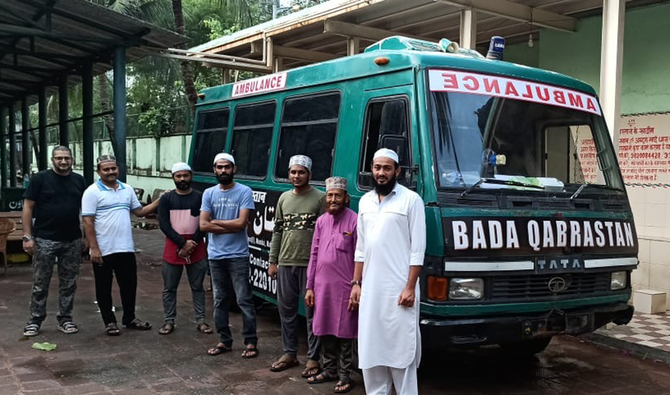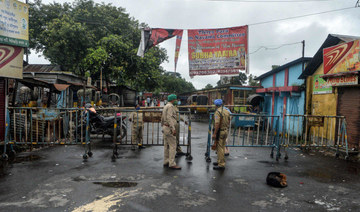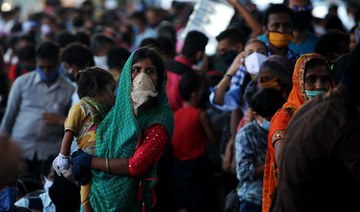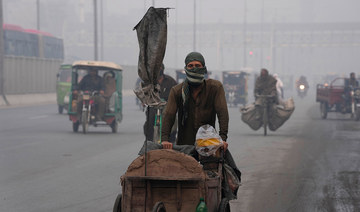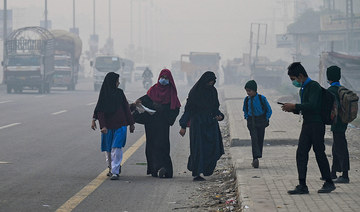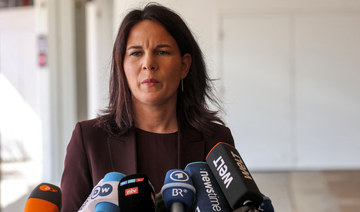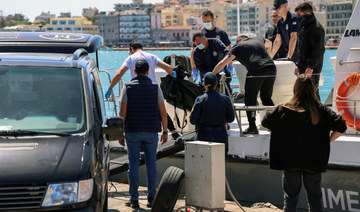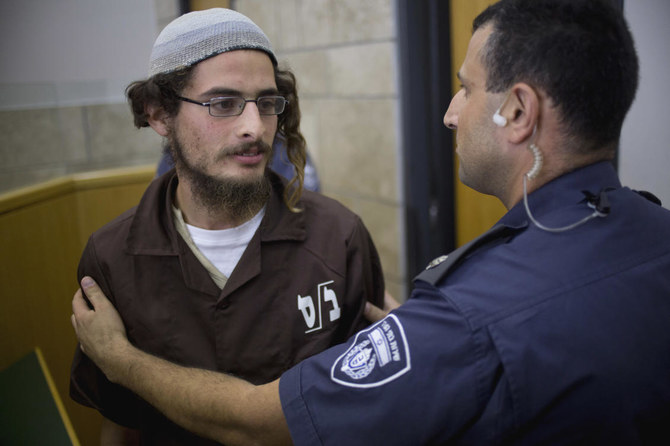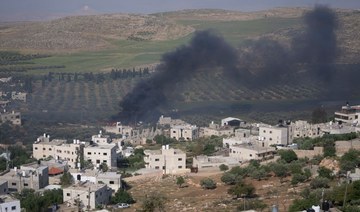NEW DELHI: Pratamesh Walavalker was always proud of living in a well-connected area with neighbors and relatives who look out for each other.
However, the resident of Dombivali East, nearly 70 kilometers from India’s financial capital Mumbai, experienced a harsh reality check on Thursday.
None of his neighbors or more than 100 relatives responded to his calls for help when his 57-year-old father died of coronavirus-related complications.
Help, he said, finally arrived in the form of Iqbal Mamdani and his group of Muslim volunteers, who took his father’s body to a cremation ground for his last rites.
“No one came to our help, not even my close neighbor. There is so much panic among people about COVID-19 that our own don’t come near us. The Muslim volunteers helped us in this hour of crisis,” Walavalker, 28, told Arab News.
That same night, 50-year-old Mamdani and his group of volunteers helped another family perform the last rites of an 80-year-old Hindu woman who had also fallen victim to the disease.
The group was formed in late March after a local civic body said: “All dead bodies of COVID-19 patients should be cremated at the nearest crematorium irrespective of religion.”
After reports of a Muslim man being cremated in the Malwani area of the city angered the community, several members met with the authorities and managed to revise the order.
Since then, Mamdani said members of Mumbai’s Bada Qabrastan — the largest cemetery in the city — have extended their services to other communities as well.
“We get calls from different hospitals and people, and they seek our help in taking bodies to their final resting place. We decided to help the victims at this hour of crisis when there was chaos and panic in the city with the number of coronavirus cases increasing every day,” he told Arab News.
So far, the group has buried 450 Muslim bodies and cremated over 250 Hindu bodies.
He said their efforts would have been impossible without the Jama Masjid Trust, which oversees the Bada Qabrastan.
“On our request, the government allowed us to bury the dead bodies in seven burial grounds in the city,” he said.
There was one problem, however.
“No one was willing to come forward to collect dead bodies from the hospital and bring them to the cemetery,” Mamdani said.
Through word of mouth, Mamdani said seven Muslim volunteers quickly offered to help out.
The first challenge the group faced was a lack of ambulances, due to a shortage in supply as a result of the pandemic.
At first, they tried renting a private ambulance, “but the owner would not rent their vehicles for carrying COVID-19 victims,” Mamdani said.
With no other option left, the group decided to pool their resources and buy abandoned ambulances.
Mamdani said: “We managed to get 10 such vehicles from different parts of the city. With the help of mechanics and other resources, within eight days we managed to roll out the ambulances on the road.”
When the volunteers began gathering Muslim bodies from the hospital, they realized that several Hindu bodies had been left unclaimed, as their relatives “were too scared to perform the last rites.”
Mamdani said another factor behind unclaimed Hindu bodies was quarantine. The lockdown forced relatives to stay indoors and avoid the cremation grounds.
Experts have praised the efforts of the group.
“The Muslim volunteers have been really great support. They started working at a time when there was total chaos and panic in Mumbai,” Dr. Sulbha Sadaphule of Cooper Hospital, Mumbai, told Arab News.
Of the 820,000 COVID-19 cases in India, 100,000 are in Mumbai, where around 5,500 people have lost their lives from the nationwide fatality count of around 22,500.
“The morgue was overflowing with bodies because of a lack of ambulances and staff. When hospital staff and health workers were short in numbers they were helping us and the people,” added Dr. Sadaphule.
Mamdani said they would not have done it any other way.
“India is a country of religious harmony and we believe there should be no discrimination on the basis of religion. With this motto we decided to perform the last rites on behalf of the Hindu families with the support of the police and relatives,” he said.





